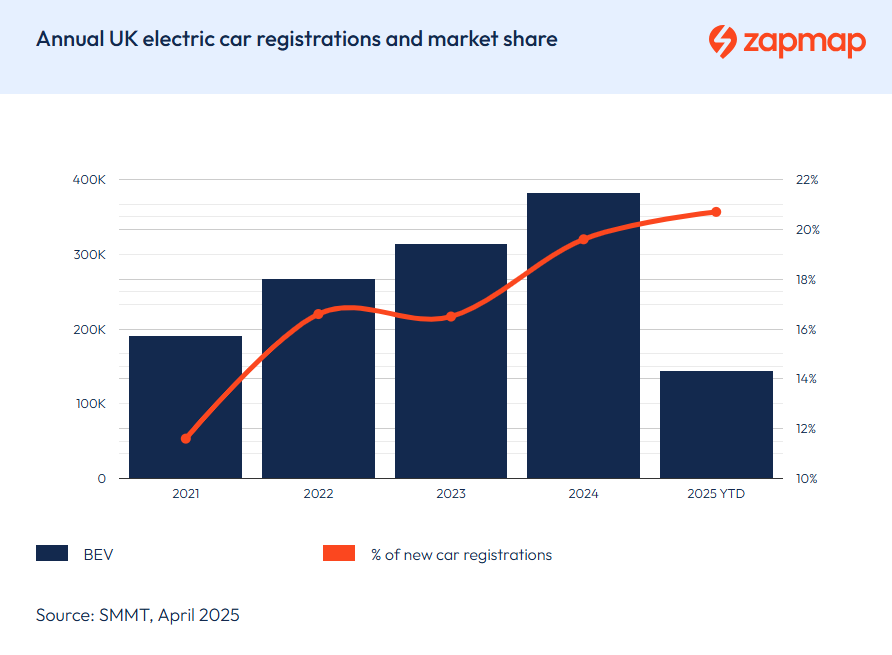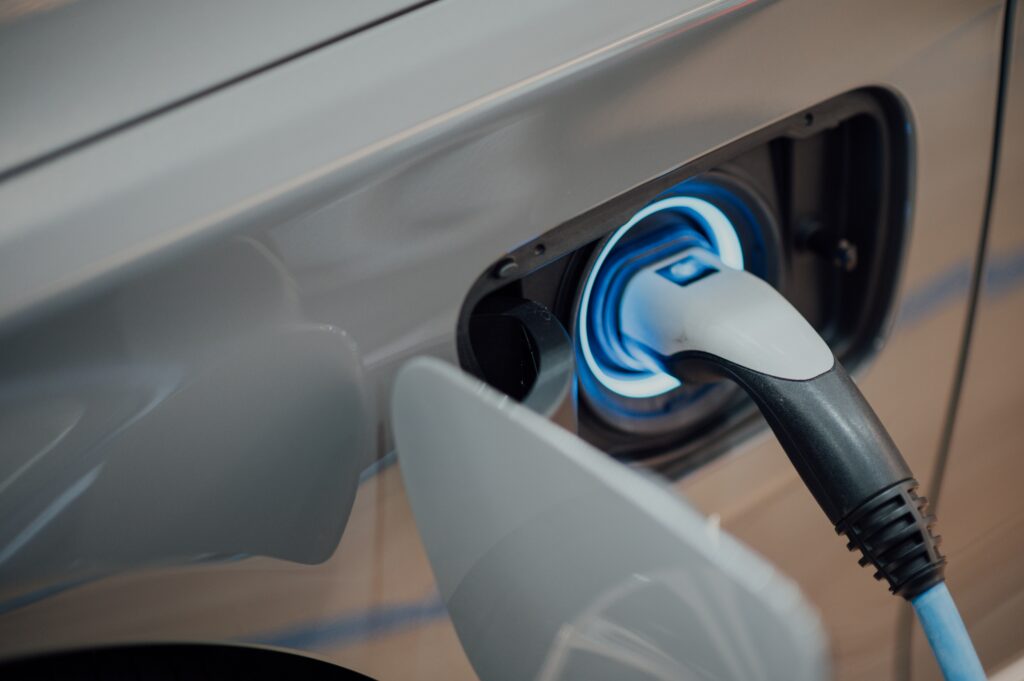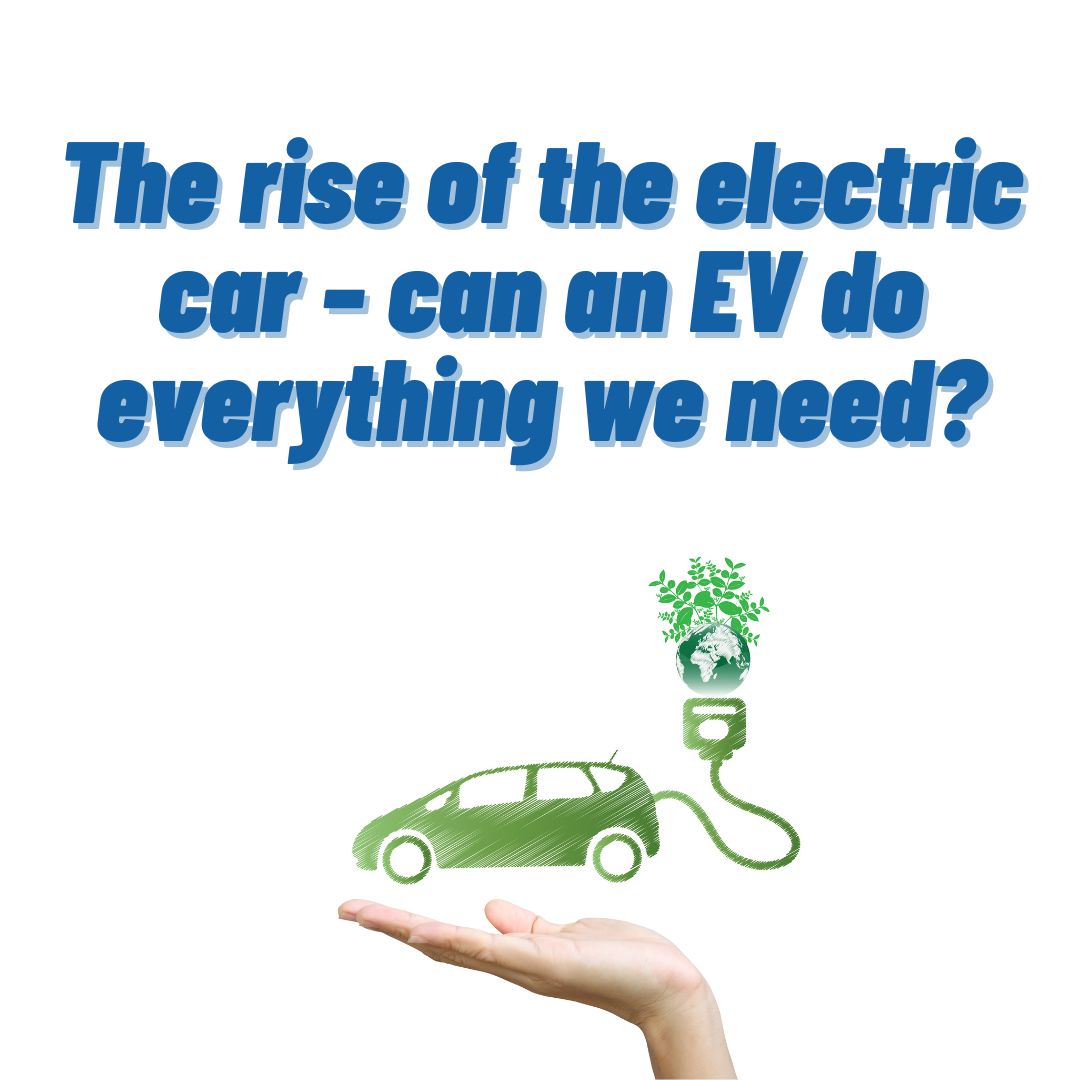The rise of the electric car – can an EV do everything we need?
Electric cars are not a new phenomenon. They’ve been around since motor vehicles first existed, but the poor progress of battery technology meant that combustion engine vehicles soon became the mode and the norm. But at what cost? The environment has not thanked us humans for the incessant and growing emissions that internal combustion engine (ICE) cars and vans inevitably create, and our dependence as a society on oil, usually imported, has frequently meant instability for domestic and commercial budgets, and for societies both at home and in oil-producing nations.
Whether switching from diesel and petrol to battery power (or a combination of the two) is the complete answer is a moot point but it’s a step in the right direction and there’s no denying that electric cars are going to be a more common sight on our streets. But can they do everything we need them to do as a household or as a business?
Just how popular are electric cars?
Electric vehicles (EVs) are no longer a niche—they’re rapidly taking over the roads.
According to SMMT’s figures for April 2025,
- In the first quarter of 2025 fully electric EVs account for just over 20% of all new car registrations in the UK
- In 2024 there were 381,970 new fully electric cars sold, which was 19.6% market share of all new cars registered that year.
With the ban on new petrol and diesel cars coming in 2030, these figures are only set to climb.

What are the most popular electric car models?
Tesla’s current runaway success continues, but competition has never been fiercer. According to the Society of Motor Manufacturers and Traders (SMMT) data, in 2024:
- Tesla Model Y remained the best-selling EV in the UK for the third consecutive year
- The Audi Q4 e-tron held second place selling 17,622 units, with Tesla Model 3 in third place.
As a manufacturer, Tesla made up over 30% of the UK EV market sales for 2024
How far can an electric car travel?
The range of electric vehicles (how far one can go on a charge) has been a talking point for many years now. While it’s been true that some early model’s ranges were inadequate and recharging points were few and far between, that is certainly not the case anymore. There has been a huge push on getting charging points rolled out to homes and offices, on-street parking, supermarket car parks, motorway service stations and pretty much anywhere else that cars tend to spend a decent amount of time.
Charging and Battery Tech
Charging infrastructure has expanded dramatically: there are now over 79,654 vehicle charging points across 39,427 locations in the UK (Zap-Map, May 2025).
Range anxiety is fading fast, thanks in part to advances in battery chemistry and energy efficiency. The average real-world range of new EVs has climbed to between 150-300 miles per charge
Home-charging grants have improved too. Under the UK Government’s Electric Vehicle Homecharge Scheme:
- 75% of installation costs (up to £350) are covered, making at-home charging more accessible.
On the horizon, solid-state batteries are projected to enter limited production, could this be the start of even faster charging and denser energy storage, one to watch.
Can an electric car have a roof rack?
Yes indeed, electric cars can have roof racks. In fact, some models such as the Tesla Model 3 come with one as an option. Many EV models, usually due to their smaller size and lighter weight do not come with a roof rack as an option.
Many electric cars don’t tend to come with a permanent roof rack as the extra weight and drag have a negative impact on the car’s performance and ultimately, on its range. EVs don’t tend to have huge boots either and a lot of models are too small to be legally allowed to tow a trailer. This isn’t much use when you absolutely have to transport something large; a temporary solution is often necessary. We can help with that!
A product such as our HandiRack can come into its own for smaller vehicles such as electric cars. Check out this video from Me and Mon Ami on using our HandiRack inflatable roof rack on a Citroen Ami to transport a paddleboard. The HandiRack can’t make you a better paddleboarder, but it can definitely help you get your kit to where it needs to be!
Always be sure to check your car’s manufacturer recommendations for weight limits before loading up too much on the IKEA run though!
Can an electric car tow a caravan?
Again, whether an electric car can tow a caravan is down to the size and capability of the car itself. Some bigger electric cars are certainly capable of towing something like a light trailer. Hybrid cars tend to have greater capacity for towing so might be a better option if you’re going to be taking a caravan away a lot.
Here is a guide to which electric cars might be suitable for your towing needs Best hybrid and electric cars for towing
Could you have an electric car?
You may already have an electric car, or are thinking of getting one but the reality is that by 2030 you won’t be able to buy a new petrol or diesel car in the UK anyway. Continual improvements in EV technology will mean that the current objections to owning one instead of an ICE vehicle will be minor points. Putting that aside, most households and business currently have daily travel requirements which fit well within the limits of the average electric vehicle and EV ownership is more of a matter of initial cost, availability of space to charge at home or at the workplace, and mindset.
So yes, EVs can do a lot of what we need them to be capable of right now, and the rest is being worked on. If you have an EV, there is definitely a solution to the current issue you are facing.

Photo by CHUTTERSNAP on Unsplash

















